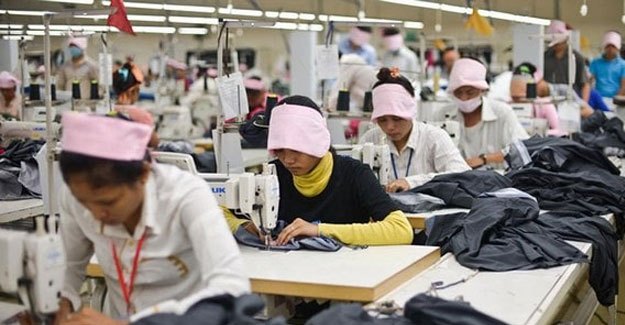
ILO Wants Garment Industry To Do More To Help Workers
The coronavirus pandemic has slammed the apparel industry, leaving many of the 65 million Asian garment factory workers struggling as factories close or cut back on wages, and the International Labour Organisation is urging the industry to do more to protect them. The ILO issued a report noting that imports from major garment-exporting countries in Asia plunged by up to 70% in the first half of 2020 and are still well below levels before the crisis hit, costing many workers their jobs as factories closed or cut back on production. While that has had dire consequences for those working in the industry, most of them women, the pandemic is an opportunity for fashion brands to make their supply chains more resilient, sustainable and human centred," said Christian Viegelahn, a senior economist at the ILO's regional office in Bangkok. A full recovery for the industry will likely depend on overcoming the pandemic and may not come until 2022, he said. Ensuring a better safety net for garment factory workers who have scant support to fall back on when they lose their jobs in countries like Bangladesh, Cambodia and Myanmar is vital, the ILO researchers said. But the industry needs to do more to improve basic things such as power supplies, logistics and communication and should also try to become more environmentally friendly. The ILO report assessed conditions in 10 major garment exporting countries in the Asia-Pacific region: Bangladesh, Cambodia, China, India, Indonesia, Myanmar, Pakistan, Philippines, Sri Lanka and Vietnam. The region accounts for three-quarters of all garment factory jobs, it said. Almost half of all jobs related to apparel making in the region depend on exports to wealthy countries in the West, where outbreaks of the coronavirus led to lockdowns that may once again disrupt shopping and trade as caseloads rise. The survey, conducted in the spring, found that workers lost an average of two to four weeks of work. Only about three in five workers were called back to work after their factories reopened from shutdowns. Even those still employed are facing smaller paychecks or delays in getting their wages. The ILO study was carried out by Cornell University and an ILO team including experts from groups such as Better Work, which aim to improve conditions in the industry. “The pandemic has revealed vulnerabilities and weaknesses in the entire fashion supply chain, which can crash so easily with no safety net," said Tara Rangarajan, head of communications, buyer engagement and the Americas for Better Work, which cooperates with governments, global brands, factory owners, unions and workers to improve working conditions in the garment industry and make the sector more competitive. “It is so important for the brands to take their responsibility... so that it does not become the race to the bottom," she said.
Textile Excellence
If you wish to Subscribe to Textile Excellence Print Edition, kindly fill in the below form and we shall get back to you with details.













